A majority of U.S. adults (55%) say that whether something is right or wrong often depends on the situation. Fewer than half say there are clear and absolute standards by which to decide whether something is right or wrong, according to the 2023-24 Religious Landscape Study (RLS).
In response to a separate question, the survey finds that 68% of Americans say it is possible to be moral and have good values without believing in God. Just 30% say it is necessary to believe in God in order to be moral and have good values.
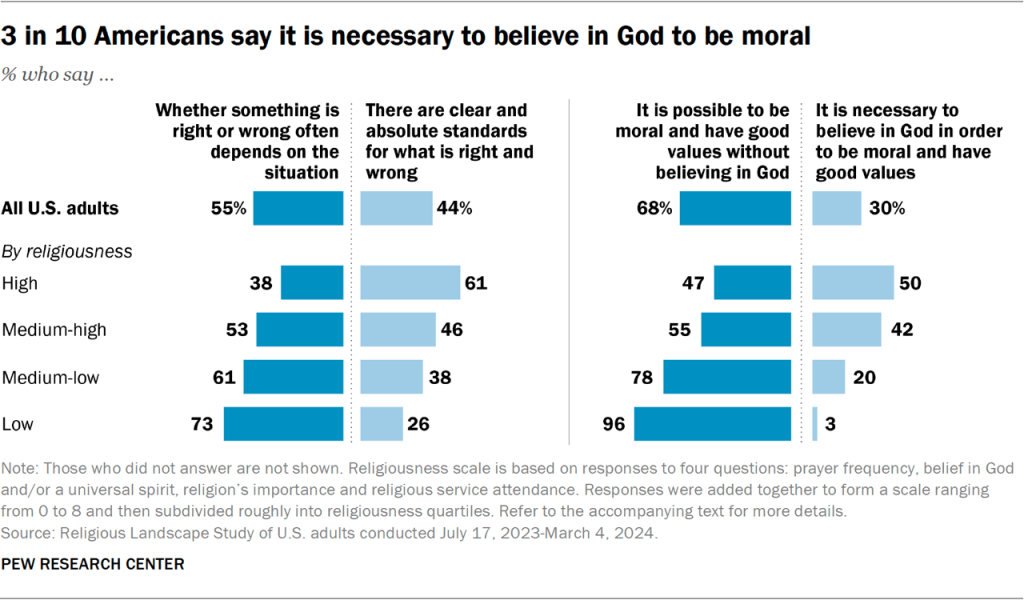
Half of highly religious Americans say that belief in God is necessary to be moral and have good values, and 61% say there are clear and absolute standards for right and wrong.78
The survey also asked Americans about various factors they may consider when making moral decisions.
Slightly more than half of Americans (53%) say religious teachings and beliefs are extremely important or very important when making decisions between right and wrong. But the percentage of U.S. adults who say this is considerably lower than the shares who view practical experience and common sense (93%), logic and reason (92%) and scientific information (75%) as extremely or very important for moral decision-making.
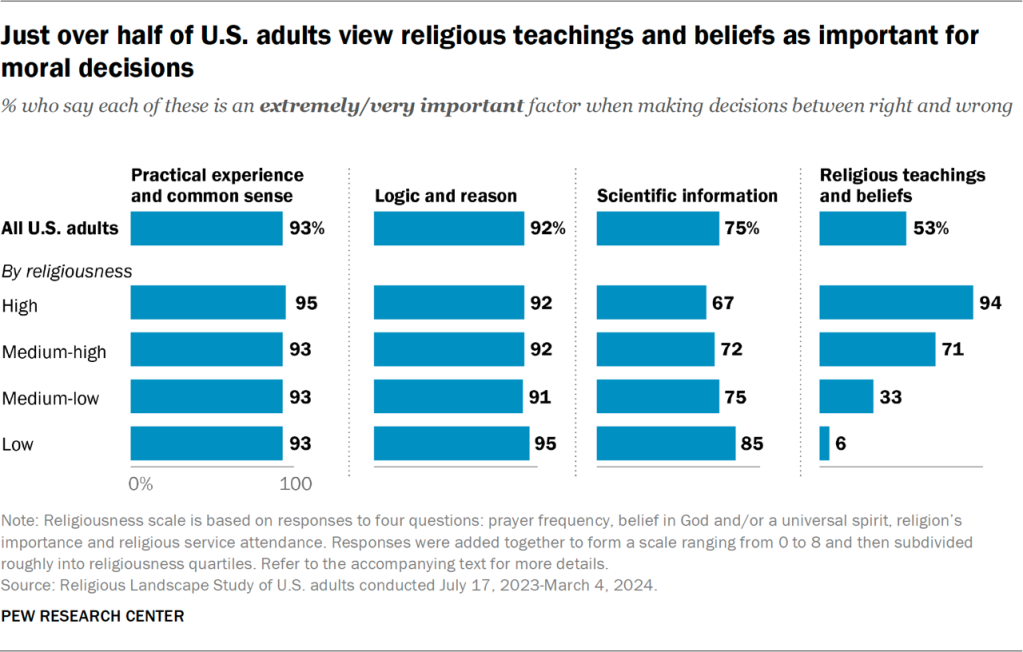
The vast majority of U.S. adults at all levels of religiousness say that “practical experience and common sense” and “logic and reason” are extremely or very important for deciding between right and wrong.
Highly religious Americans are less likely than those with low levels of religious engagement to consider scientific information to be an important factor in moral decisions. Nevertheless, a clear majority of the highly religious (67%) view scientific information as important.
Not surprisingly, Americans who are highly religious are much more likely than those with low religious engagement to view religious principles as important for deciding between right and wrong. Overall, 94% of highly religious Americans say religious teachings and beliefs are extremely or very important to how they think about matters of right and wrong.79
Jump to sections about religious groups’ views on:
- Whether moral standards are absolute
- Whether belief in God is necessary to be moral
- Factors that guide moral decision-making
Are moral rules absolute or do they depend on the situation?
Overall, 55% of U.S. adults say that whether something is right or wrong often depends on the situation (55%), while 44% say there are clear and absolute standards for right and wrong.
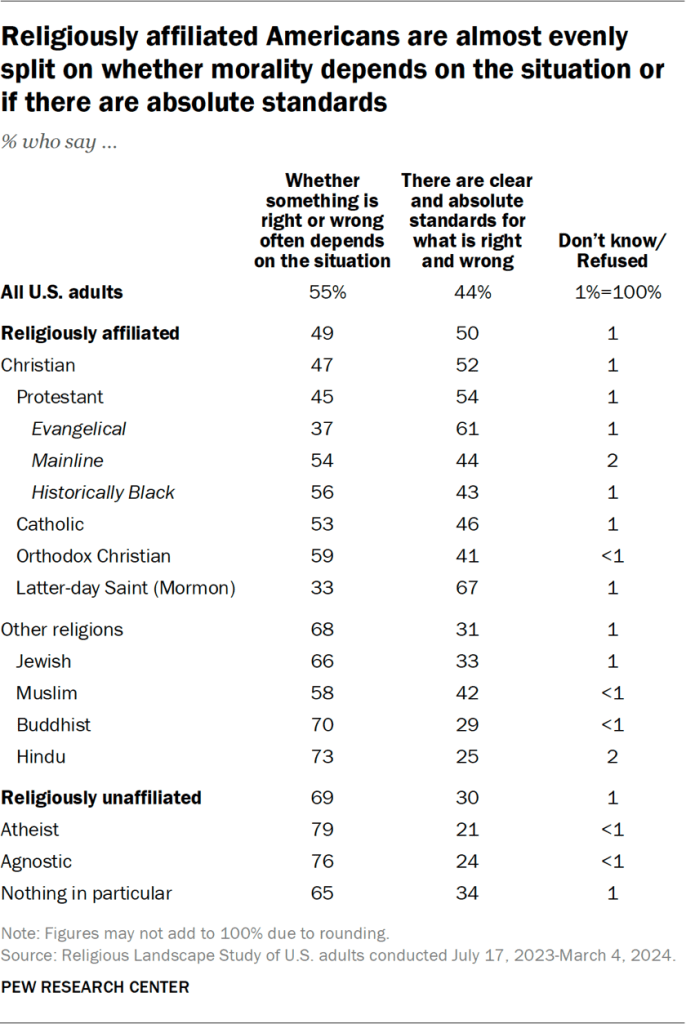
Majorities of Hindus (73%), Buddhists (70%), religiously unaffiliated Americans (69%) and Jewish Americans (66%) say whether something is right or wrong often depends on the situation.
Muslims (58%), members of the historically Black Protestant tradition (56%), mainline Protestants (54%) and Catholics (53%) also are more likely to say that right and wrong depends on the situation, rather than that there are clear and absolute standards.
Evangelical Protestants and members of the Church of Jesus Christ of Latter-day Saints (widely known as Mormons) are the only religious groups analyzed in which a majority of adults say there are clear and absolute standards for what is right and wrong.
Does belief in God matter for being moral and having good values?
More than two-thirds of Americans (68%) say it is possible to be moral and have good values without believing in God.
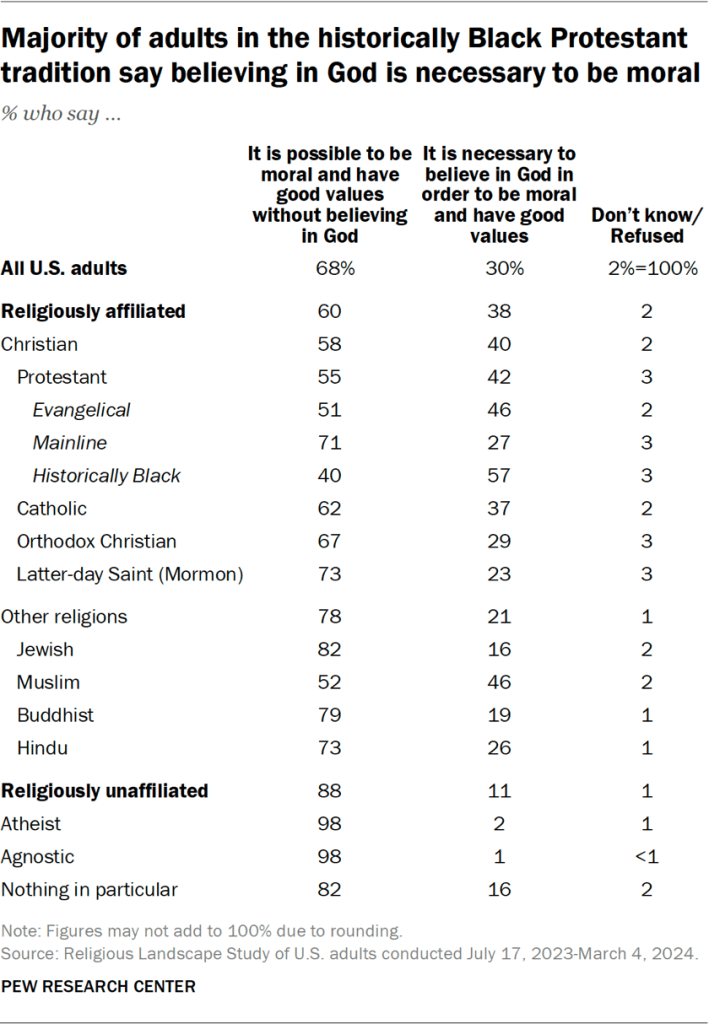
Americans of nearly all religious and nonreligious backgrounds lean toward the notion that belief in God is not necessary to be moral. But among members of the historically Black Protestant tradition, a majority (57%) say it is necessary to believe in God in order to be moral and have good values.
How much does religion matter for morality, relative to other factors?
When asked whether religious teachings and beliefs are important for deciding between right and wrong, just over half of Americans (53%) say religion is either extremely important or very important in such decisions. This is considerably lower than the shares who say that “practical experience and common sense,” “logic and reason” and “scientific information” are extremely or very important.
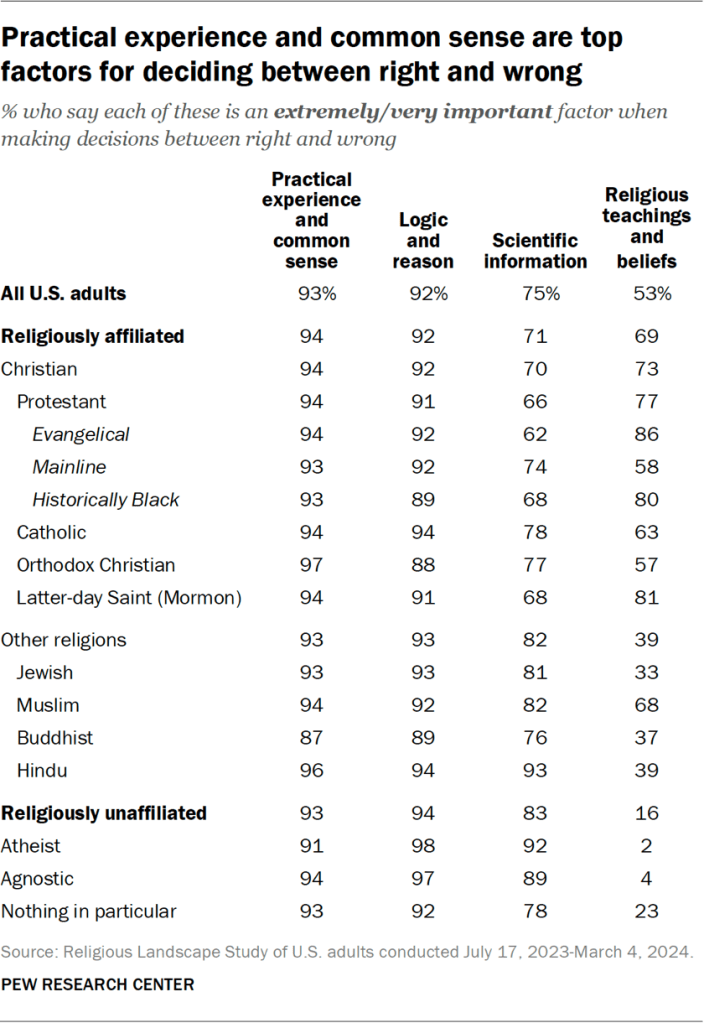
Among every religious group analyzed, larger numbers say “practical experience and common sense” and “logic and reason” are important than say “religious beliefs and teachings” are important in these kinds of decisions.
In many religious groups, larger percentages also ascribe importance to “scientific information” than to religious beliefs in moral decision-making. The exceptions are evangelical Protestants, members of the historically Black Protestant tradition and Latter-day Saints. More people in those three groups consider religious principles than scientific information to be important in discerning right from wrong.




